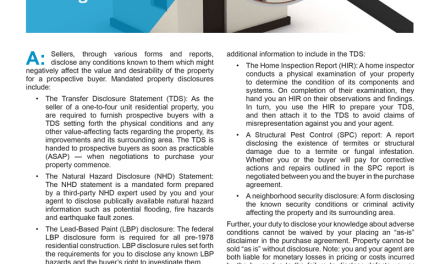The following is an excerpt from the new edition of the firsttuesday Career Manual, a best practices guide to help new real estate licensees establish their personal brands and boost income. In this excerpt, we discuss social media tips for real estate professionals.
Why use social media?
The marketing strategies of successful real estate agents have swiftly transformed to meet the demands of today’s digital age. While the answers have changed, one thing that hasn’t changed is the obligatory question: Where are you going to find your next client?
To find out, look to where potential clients congregate online. For most communities, the answer is on social media websites.
But what’s the best way to harness social media to make connections and turn connections into actual clients?
First and foremost, social media pairs best with your individual agent website.
Social media is primarily about staying visible to past and current clients, but it’s also about directing potential clients to your website. So, before even venturing into social media marketing, create or improve your agent website.
Then, explore the various social media platforms and choose the one or two best suited to your local demographics and professional needs.
Facebook is one of the most-visited social media sites on the web. If you’re a social media user, chances are good you already use it. This makes it an appealing marketing tool for real estate agents.
Like other social media sites, the focus of Facebook is socializing with connections. Therefore, cold-hearted ads gain little interest on Facebook. In fact, the site even has rules against posting that type of content.
Instead, Facebook is best for posting about the more personalized, warm and fuzzy part of real estate. As all practicing agents know, real estate is a touchy-feely business, and Facebook is the perfect platform for this sentiment.
Instagram has grown rather large in recent years, especially after being acquired by Facebook. Users post pictures and short videos to their Instagram feed or stories and can provide links to other websites or social media platforms like Facebook and Twitter, with more interactive linking options available for business profile users. This service has a comparable demographic reach to Facebook and is most commonly used by young adults. Thus, Instagram may be one of your best tools for reaching millennial first-time buyers.
You can create a profile specifically to market yourself as an agent and/or your real estate business, being as formal or informal in your social media presentation or finding a balance of the two to better personalize yourself to potential clients. You can share real estate tips, photos of listings you have, advertise your upcoming open houses, and homes or happy clients you’ve successfully sold homes to. The possibilities are quite varied on this particular platform.
Twitter has the third-highest number of users after Facebook and Instagram. With each post limited to 280 characters, most averaging 33, “tweets” tend to be less substantive and more about the instant gratification of the person sending a tweet than Facebook or other social media sites.
Research shows Twitter users click most often on posts promoting freebies and contests. Therefore, it’s more natural for a user to interact with an ad on Twitter than on Facebook.
But with real estate, freebies and contests are usually reserved for the big players, like Zillow and Redfin, not individual real estate agents.
LinkedIn is about a third the size of Twitter. The main purpose of LinkedIn is to connect with business relations.
This is positive since potential clients on LinkedIn are never looking to read the latest celebrity gossip or see pictures of their friends’ babies, as happens on Facebook and Twitter.
However, they aren’t necessarily looking to find their real estate agent on LinkedIn, either.
Most users employ LinkedIn to connect with individuals within their field of business. For you, LinkedIn is more helpful to make connections with other individuals in the real estate business, like contractors, builders, appraisers and, of course, other agents and brokers.
All the same, these connections can be helpful in gaining referral business.
Pinterest is a smaller social media platform. However, real estate agents and their clients seem to love it.
The purpose of Pinterest is to share photos with other users, like Instagram. However, on Pinterest’s platform, these photos are designed on “boards.” Like a real-life cork board, you can save “pins” of other people’s pictures. These pins are often recipes, crafts and home décor ideas, and usually link to other websites where you can view the full description of the photo. Similarly, you can create entire boards of homes you have listed.
What to post on social media
Now that you’ve chosen your platform(s), you need to create your profile(s).
Many agents recommend creating a separate business profile for your chosen social media site, rather than using your personal one (this isn’t a problem for LinkedIn, since your business account is your personal account).
However, you may find it easier to have just one account — for instance, you may use Pinterest only for business-related purposes and may not want a separate personal account at all.
Or you can combine both personal and business profiles into one. This can come across as more authentic and endearing to clients, as they can get a glimpse into the “real” you. This promotes trustworthiness and a deeper connection, as long as your content always stays appropriate and positive.
Getting started on social media
After you’ve created your profile(s), you’re ready to start posting. Here are some ideas of things to post:
- your listings and the listings of other agents in your broker’s office;
- professional successes, such as meeting sales goals, receiving an award or even giving shout-outs to colleagues you’ve had the pleasure of working with;
- appreciation for clients, like celebrating when your client moves into their new home;
- advertising neighborhood events;
- neighborhood pictures, and if you have a Pinterest account, a neighborhood board;
- practical decorating, gardening or home improvement tips; and
- light, friendly posts about your own (controversy-free) interests to assist your authenticity ratings.
Is advertising worth it?
Finally, you may be wondering — should I invest in social media ads? Facebook, Twitter and Pinterest all offer the option to promote your content for a cost. The site places your ad into a user’s feed, and if a user clicks through to your site, you owe the site money (usually less than a dollar per click). You can set a budget so the site removes your ad once you’ve hit your click goal.
But do these ads work?
Facebook ads don’t work too well for real estate agents (unless you have a contest or freebie to offer). Twitter and Pinterest generally work slightly better than Facebook.
That being said, since most aspects of social media are free, you’re probably better off skipping advertising and spending your money on other aspects of your marketing plan, like door-to-door or direct mail marketing. These methods are all more likely to get you new clients than social media ads.
How to measure success
How do you know when your social media activity is paying off?
While you’ll never know for sure how much direct profit you earn per hour spent promoting yourself on social media, there are a couple ways to produce a rough picture.
First, set up a Google Analytics account to track activity on your agent website. Analytics measures a number of visitor activities, like what pages people visit, how long they remain on a page and how they entered your website, called the traffic source. For example, did they enter through a Google search? Or did they click a page you linked on Facebook?
This information is helpful as it reveals what types of social media posts work best by promoting clicks. Then, you can focus your social media efforts on those specific types of posts.
For instance, posting a listing to Twitter with pictures will garner more clicks than a listing
without photos (a fact which is certain to be proven by your use of Analytics). Therefore, instead of wasting time posting photo-less listings, you’ll know the importance of always including pictures.
Using Google Analytics may also bring less obvious information about your audience to light, like time of day or day of the week they are most likely to be online and actively engaged.
Second, find out if your social media strategy is succeeding by asking your clients how they found out about your services.
You can do this in person or include the question on your website’s online contact form.
Keep in mind, past clients likely won’t tell you they found you on social media — but they may have kept up with your activities through social media, thus making it more likely for them to contact you the next time they need a real estate agent.
Is social media necessary for real estate agents?
Social media is not required to succeed in the real estate business. There are certainly other forms of marketing you can focus on, like direct mail marketing or promoting yourself on Google searches.
The difference between other marketing platforms and social media is that social media is, for the most part, free.
Think of social media as a single piece in your broader marketing strategy.
Don’t devote your entire time and budget marketing your real estate brand on social media. Instead, divide up your time more appropriately to the responses received, say:
- four hours a month — and zero dollars — posting and interacting with clients on social media;
- two hours a month — and a limited budget — on email marketing;
- three hours a month — and a large chunk of your marketing budget — on direct mail marketing; and
- six-to-eight hours a month — and another significant chunk of your marketing budget — on door-to-door FARMing of the neighborhoods you serve.
Expect to set aside 5-10% of your annual earnings for marketing costs. Set a schedule and a plan for marketing, and constantly evaluate and tweak to get better results — and in time, you always will.














